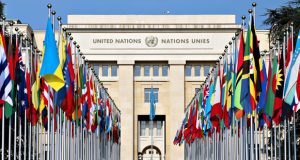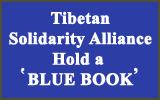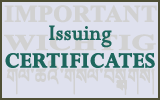UN Body Concludes Widespread Human Rights Violations in Tibet and Recommends China to Take Corrective Actions

The UN Committee on Economic, Social and Cultural Rights released its concluding observations following the third-cycle review of China’s implementation of the UN Convention on the Economic, Social and Cultural Rights held in mid-February this year.
The UN committee has noted widespread violations by China in the implementation of its obligations under the Convention including in Tibet, Xinjiang, Hong Kong, Macau and Mainland China.
Forced Relocation and Rehousing of Tibetan nomads and small-scale Farmers:
The experts have expressed concerns about the “resettlement of nomadic herdsmen, particularly Tibetan ones, is carried out in the State party without proper consultation and in most cases without free, prior and informed consent” as well as the small-scale farmers who have lost their “traditional lands and livelihoods owing to poverty alleviation schemes and ecological restoration resettlement measures, and that compensation for the expropriated property is often insufficient to maintain an adequate standard of living.” The UN Committee has recommended China immediately halt all such forced relocation and rehousing programs and undertake meaningful consultation to explore alternative options with full, adequate and timely compensation.
Labour Conditions:
Expressing concerns about the poor working conditions, harassment at the workplace and lack of labour inspection mechanisms to investigate violations in Tibet, the UN Committee has recommended China ensure necessary resources for labour inspection and independent audit companies to take actions against entities in Tibet.
Cultural and Linguistic Rights:
The UN Committee has noted its concerns about the severe restrictions faced by Tibetans regarding their right to take part in cultural life including the right to use and teach Tibetan language, history and culture. Furthermore, it has highlighted the closure of schools providing instructions in the Tibetan language followed by a “large-scale campaign to eradicate Tibetan culture and language” through the “assimilation policy of the State party, known as sinicization, including the coerced residential (boarding) school system imposed on Tibetan children.”
Accordingly, the UN Committee has called on China to abolish the coerced residential school system and to allow private Tibetan schools to be established. Furthermore, it has recommended China take all necessary measures to ensure that Tibetans can fully exercise their right to cultural life, identity and practice and use the Tibetan language.
Religious Freedom:
The UN Committee has noted its concerns about the increasingly tighter regulation of religious practices and the systematic and massive destruction of religious sites including monasteries in Tibet. The Committee has recommended China “take adequate measures to protect cultural diversity and the cultural practices and heritage” of Tibetans “including by protecting and restoring religious sites.”
Tibet Bureau Geneva participated in the review and submitted reports. Welcoming the concluding observations Representative Thinlay Chukki has noted that the “Chinese Government’s widespread human rights violations in Tibet especially in terms of economic, social and cultural rights have been evidently noted by the UN Committee members. We sincerely hope that the Chinese government will take the corrective actions recommended by the UN Body. The UN body should also undertake timely interventions to ensure that its recommendations are not relegated to documentation but are meaningfully implemented by the Chinese government.”




